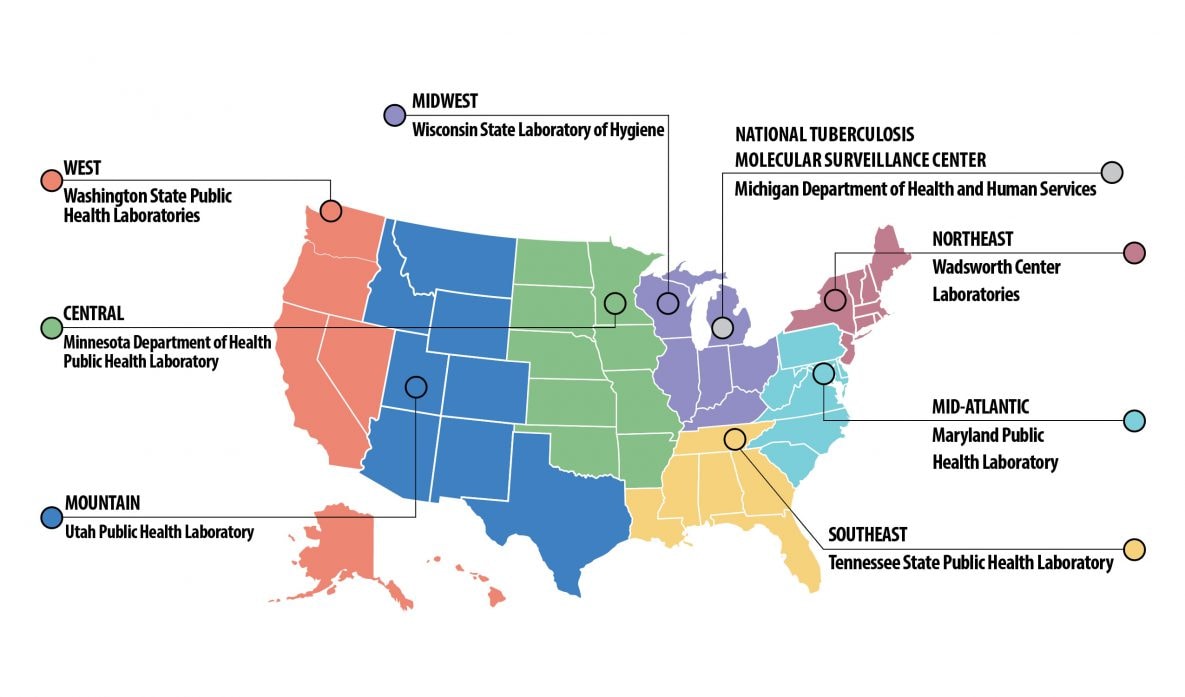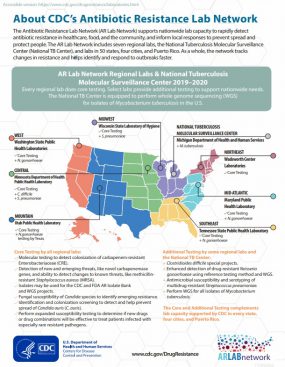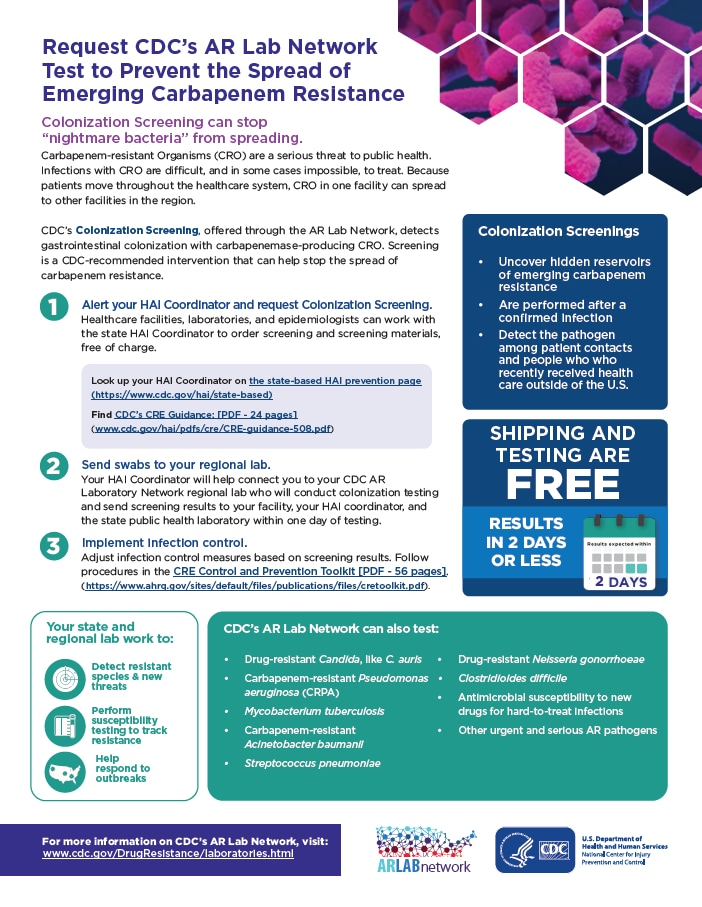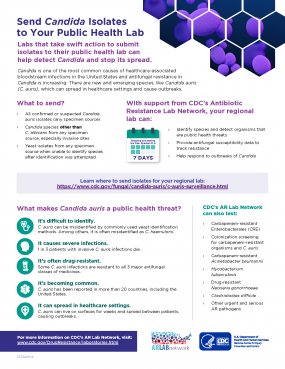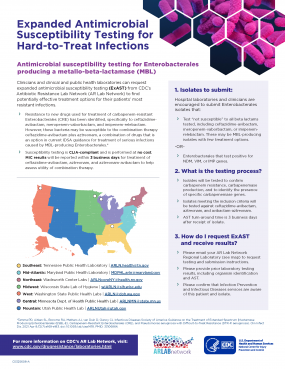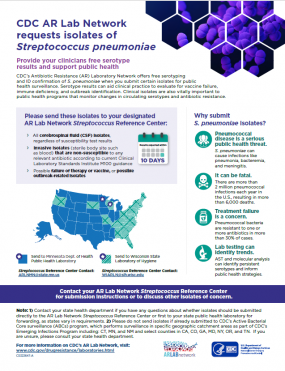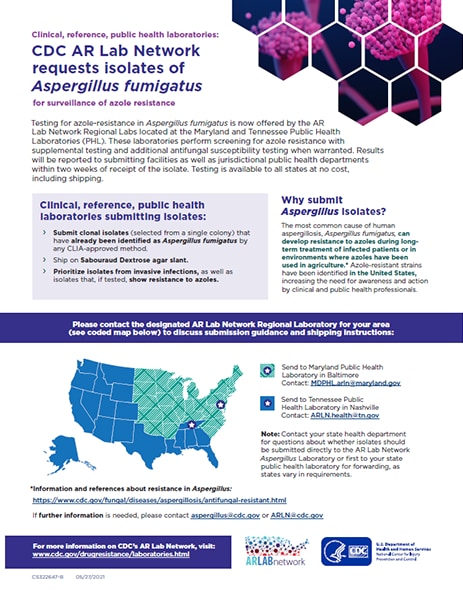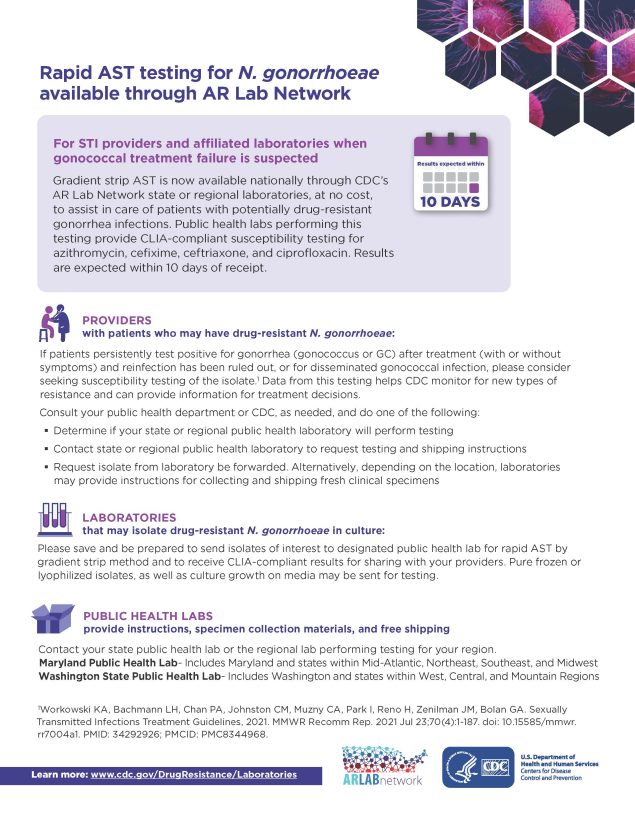About the AR Lab Network

Laboratory tests can help guide patient treatment, detect emerging threats, and prevent the spread of antimicrobial resistance in the U.S. CDC’s AR Lab Network supports nationwide lab capacity to rapidly detect antimicrobial resistance and inform local responses to prevent spread and protect people.
The network closes the gap between local capabilities and the data needed to combat antimicrobial resistance by providing:
- Comprehensive lab capacity and infrastructure for antimicrobial-resistant pathogens
- Cutting-edge technology, like DNA sequencing
- Data to drive response and prevent infections
The AR Lab Network includes labs in 50 states, several cities, and Puerto Rico, including seven regional labs and the National Tuberculosis Molecular Surveillance Center (National TB Center).
CDC’s antimicrobial resistance laboratory networks support lab testing in health care, the community, and the environment (e.g., water, soil). This work ultimately improves patient care and informs solutions against resistance threats.
Find state public health contact information below, or by visiting CDC’s Health Department HAI/AR Programs website (click on a state). Email ARLN@cdc.gov for more information about the AR Lab Network.
Central:
- Minnesota Department of Health Public Health (St. Paul, MN)
- ARLNMN@state.mn.us
Mid-Atlantic:
- Maryland Public Health Laboratory (Baltimore, MD)
- MDPHL.ARLN@maryland.gov
Midwest:
- Wisconsin State Laboratory of Hygiene (Madison, WI)
- wiARLN@slh.wisc.edu
Mountain:
- Utah Public Health Laboratory (West Valley City, UT)
- ARLNUtah@utah.gov
Northeast:
- Wadsworth Center Laboratories (Albany, NY)
- ARLNcoreNY@health.ny.gov
Southeast:
- Tennessee State Public Health Laboratory (Nashville, TN)
- ARLN.health@tn.gov
West:
- Washington State Public Health Laboratories (Shoreline, WA)
- ARLN@doh.wa.gov
National Tuberculosis Molecular Surveillance Center:
- Michigan Department of Health and Human Services (Lansing, MI)
The AR Lab Network mark (shown at the top of this page) may only be used by network members for non-profit public health purposes and with written permission from CDC. Please email ogw9@cdc.gov to request use of this mark.
